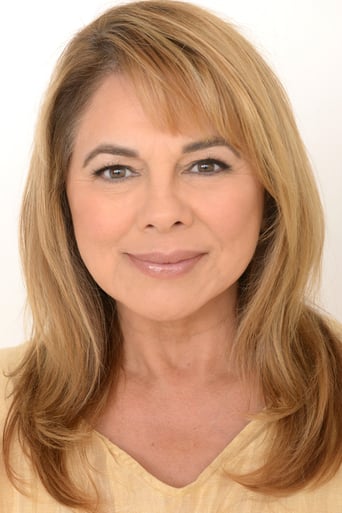sahorton-162-591992
I have already knew that there was a problem with the amount of clean water available in the world due to a class that I took back in Spring of 2013. The one thing I found scary was when they talked about the towns in the US that people were getting sick and some people were dying because of chemicals being in the water and they shouldn't have been. We should be able to depend on our cities and states making sure our water is drinkable. It's also sad that farmers and some citizens in California are not being able to obtain enough water to either water their crops or just drink it. In my state of Kansas, there are parts of the state that have to minimize the amount of water they use during the Summer and they are making it work. Decreasing the time you water your lawn or how long you are taking a shower, makes a difference that many people don't realize. We all need to do are part in helping reduce the amount of water we use everyday. I really enjoyed learning more about the problems we have out there, when it comes to the water shortage and ways that I could do to help decrease the amount of problems with our water. I would recommend other to watch this as well.
Steve Pulaski
Documentaries that try to drum up social awareness usually wind up being made into "blame game" documentaries, pinning all the blame on the public and offering scarce solutions on how the conflict could be curbed. I got very little enjoyment out of being lectured and talked down to by Al Gore in An Inconvenient Truth and found myself being told various scare tactics in the book when viewing Food, Inc., and found very little in the way of being told how I could be of a solution to the issue of America's incredibly disorganized way of manufacturing food products.Finally, here comes a sensible, organized documentary by first-time filmmaker Jessica Yu, which tackles the macro issue of a possible impending water crisis in a macro way. Last Call at the Oasis offers not only solutions that are currently being examined and soon to be implemented ways to steer us away from economical uncertainty if we as a nation begin to lose our dependence on water, but also explores a number of different issues and smaller little conflicts that make up and define the grandiose term "water crisis." We open with a quote frighteningly stating that we could soon be fighting wars over water instead of oil. Americans have taken for granted the seemingly unlimited supply of water we've been blessed to have, but with a simple turn of the faucet handle or even a trip to the grocery store, we have access to as much water as we can get our hands on. One man states how our water supply is "infinite and exhaustible," and how water is constantly reused, but we are beginning to dispose of it at a rate so fast and uncontrollable that we are approaching a darker future, where water will be harder to access and even more difficult to store. Even Las Vegas alone is responsible for 3% of the country's water consumption, with its polarizing light shows and several gigantic fountains.In America, the west coast is at the greatest risk of getting hit with a water crisis more-so than other parts. We've already been told that levels of snowpack in California are reaching record lows, and we are told that Australia's current state, which is persistent wildfires, dry climate, and water that is difficult to come by, could soon be California. We see frightening images of the current hell in Australia and are only moved to more morose feelings when one struggling farmer hopes that it is just a dry phase because if it is climate change, he will be in "deep s***." The biggest issue the film tackles head-on is the idea of recycled water; sewage water that has been extensively filtered and adjusted to be drinkable and viable. As expected, the idea is met with extreme skepticism, and all the states that have proposed the idea, such as California and Florida, have left it idly on the table. Psychologist Paul Rozin states that Americans have this undying fear for things that are frequently shown to them, which is understandable, but are so passive and accepting to things that we do every day that are unsanitary, such as leaving the bathroom neglecting to wash our hands, using gym equipment the previous man just sweat over, using public toilets, etc. The move of recycled water is now being seriously considered in California, with the idea of getting it public by 2019; hopefully it won't be too late.Contamination and the popularity of bottled water are tackled here as well. As we see the poignant images of African women lugging barrels of water at their sides or on their heads in other countries, returning to a place where not a drop is in sight, while Americans make a trip to the store to purchase bottled water and return home to a place where a simple turn of a faucet can give them more of the same thing, we question the logic of the situation and the complete and total arrogance of it all. We've been told time and time again that bottled water is allegedly better for us and are under the impression that it is more closely monitored than traditional tap water (the half a million violations the Clean Water Act has gotten can only fuel this assumption). Yet a close look proves us naive, as there are have been hundreds of recalls of bottled water because of contamination, glass particles in the water, and even mold. It's also not regulated by the United States EPA, but the Food and Drug Administration, meaning far less testing and infrequent standard checkups. Drink up.Just this past summer, the Midwest experienced a miserably endless drought, where almost all of Illinois, Indiana, Ohio, and Michigan were considered effected by the drought. Of course when talking about the water crisis, one must bring up the idea of global climate change, and how both of these issues greatly jeopardize human's future on planet earth. But one of the scariest things about Last Call at the Oasis is how it seems that there is little we can do. The basic rules still apply; turn off the water when you're not using it, shorten showers, etc, but since many people have doing that for the last few years or so and now we are faced with a looming water crisis, we question how effective our acts were in the first placeYu expertly brings facts to the table, as well as ushering in familiar, reliable faces such as Pacific Institute's Peter Gleick and known water activist Erin Brockovich. Not to mention, she also provides us with enough valuable information to call this a relatively complete documentary that more-so focuses on the issue of the steps taken to curb this disastrous possibility rather than spend time playing the blame game. Much like other documentaries of the last few years, this one demands to be seen, and it unanimously effects all of us.
dawn-forsythe
I mean, really, how does one film cover the immensity of water? And how does a person take it all in without feeling water-boarded? Last Call at the Oasis figured it out. The film gives just enough information on a range of subjects and uses down-to-earth people who make the issues understandable. I didn't drown in scientific garble! I especially appreciated the Tyrone Hayes' segment on atrazine, a herbicide that has been in the Cornbelt's water (and Midwestern bodies) for decades.I would have given this a 10-star rating, but I think they spent too much time in stargazing at Erin Brokovich. They could have spent some of that time bringing in an expert from the National Oceanic and Atmospheric Administration who could explain more about storm surge and how we need to prepare for water's destructive forces. I wish I left the theater more optimistic than when I went in, but I guess filmmakers can't produce miracles. Only truth.


